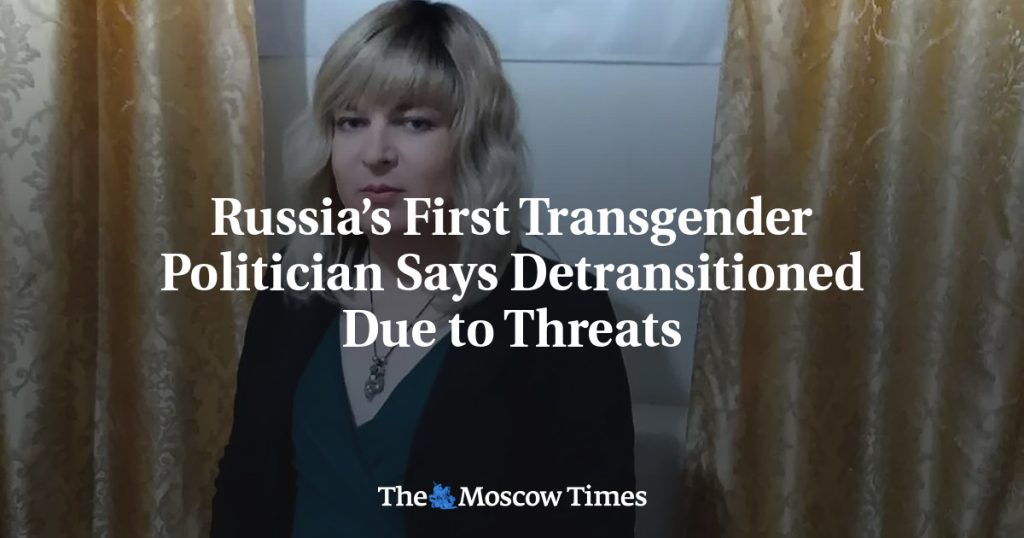Yulia Alyoshina, Russia’s first openly transgender politician, recently announced that she has detransitioned to her birth gender after receiving threats of being sent to a psychiatric hospital. She initially identified as a man named Roman Alyoshin and cited reasons such as looking through ancestral photo albums and wanting to be a patriot of Russia. However, in an interview with Novaya Gazeta Baltiya, Alyoshina revealed that stress from potential incarceration led her to make these changes. Psychiatric hospitalization was a common punishment in Soviet times and has reappeared in Russia, leading to a fear of this fate for Alyoshina.
Alyoshina disclosed that her stress started in the winter and escalated to the point of seeking assistance from the Russian Orthodox Church, which treated her poorly. Not long after abandoning her governor bid, President Vladimir Putin prohibited legal and surgical sex changes in Russia. Subsequently, Russia’s Supreme Court banned the “international LGBT public movement,” sparking intensified police raids and criminal prosecutions of LGBTQ+ individuals. When Alyoshina questioned her right to exist as a transgender person in Russia, the court provided no clear response, leaving her feeling as though she had little left to lose.
The situation for LGBTQ+ individuals in Russia has worsened in recent years, with stricter laws and increased persecution from authorities. President Putin’s ban on sex changes and the Supreme Court’s outlawing of the international LGBT movement have led to a climate of fear for those in the LGBTQ+ community. Alyoshina’s detransition was sparked by the threat of being locked up in a psychiatric hospital, a tactic used in the past by the government against its critics. This serves as a grim reminder of the challenges faced by transgender individuals in Russia and the risks associated with living openly and authentically.
Alyoshina’s decision to detransition highlights the threats and dangers that face transgender individuals in Russia. The lack of support from both the government and the church, coupled with the legal restrictions imposed on the LGBTQ+ community, have created a hostile environment for those who do not conform to traditional gender norms. The Supreme Court’s refusal to acknowledge Alyoshina’s right to exist as a transgender person underscores the systemic discrimination faced by LGBTQ+ individuals in Russian society. Despite these challenges, Alyoshina remains determined to speak out and raise awareness about the struggles of the transgender community in Russia.
The story of Yulia Alyoshina sheds light on the complex and often dangerous realities faced by transgender individuals in Russia. The detransitioning of Russia’s first openly transgender politician serves as a stark reminder of the threats and challenges that LGBTQ+ individuals in Russia face on a daily basis. The legal restrictions, government crackdowns, and lack of support from institutions have created an environment of fear and persecution for those who do not conform to traditional gender norms in Russia. Alyoshina’s decision to speak out about her experiences and seek help despite the risks demonstrates her resilience and determination to bring attention to the struggles of the transgender community in Russia.
In conclusion, the detransition of Yulia Alyoshina highlights the ongoing discrimination and persecution faced by LGBTQ+ individuals in Russia. The threats of incarceration in psychiatric hospitals, legal restrictions on sex changes, and the crackdown on LGBTQ+ rights by the government have created a hostile environment for transgender individuals in the country. Despite facing immense challenges and risks, Alyoshina remains steadfast in her determination to raise awareness about the struggles of the transgender community in Russia. Her story serves as a powerful testament to the resilience and bravery of LGBTQ+ individuals in the face of adversity and discrimination.


